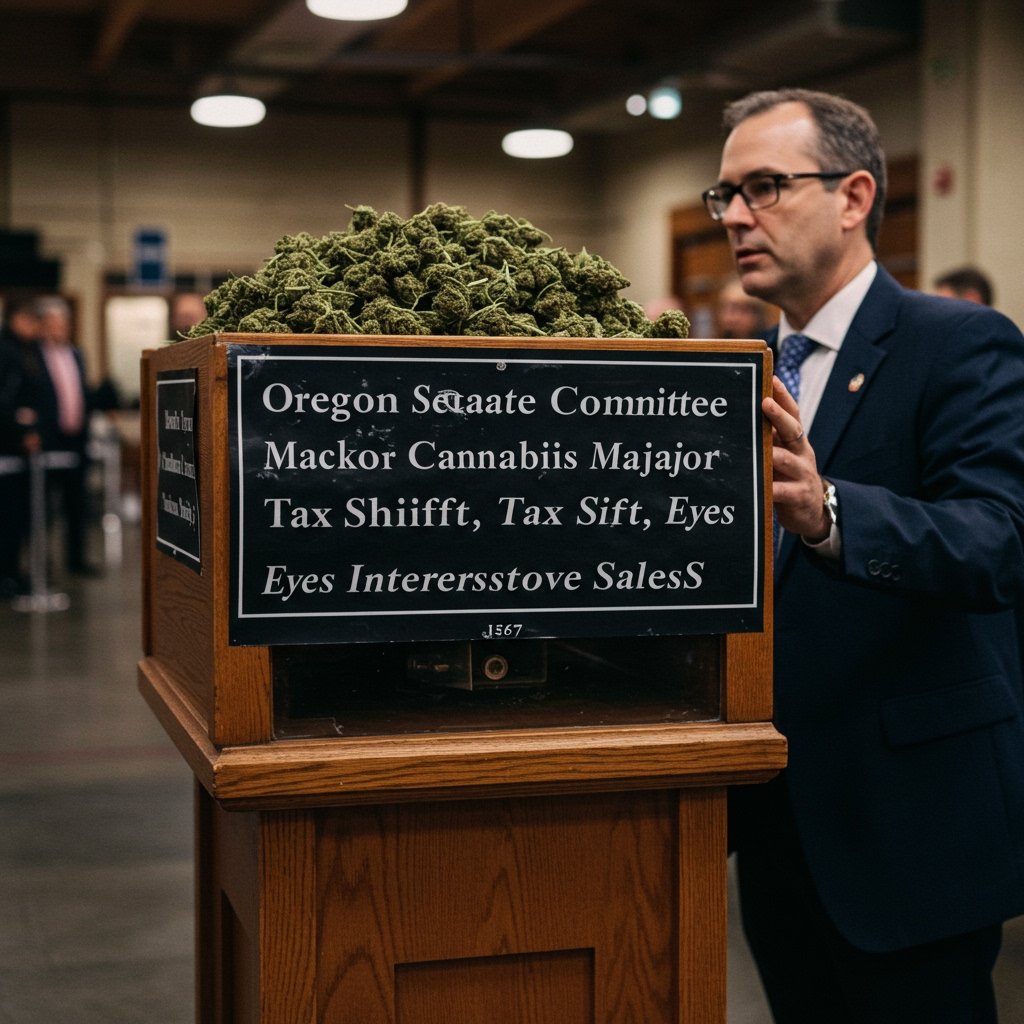Oregon Senate Committee Backs Major Cannabis Tax Shift, Eyes Interstate Sales
Salem, OR – A significant legislative development unfolded on June 7, 2025, as the Oregon Senate Finance Committee advanced Senate Bill 123, a measure poised to fundamentally alter the allocation of the state’s cannabis tax revenue and lay groundwork for potential future interstate cannabis commerce. The bill, championed by Senator Emily Carter, represents a pivotal effort to redirect state tax funds towards critical public health initiatives while positioning Oregon for potential shifts in federal cannabis policy.
At its core, SB 123 proposes a substantial restructuring of how the revenue generated from Oregon’s recreational cannabis sales tax is distributed. Currently, these funds are allocated to various state and local programs. The proposed legislation seeks to increase the percentage of this state tax revenue directed towards drug addiction treatment and mental health services. This shift is intended to address pressing public health crises facing Oregon, providing a dedicated and potentially larger stream of funding for crucial support and recovery programs.
The current distribution model sees cannabis tax revenue split among state agencies, including the Department of Revenue for collection costs, the Oregon Health Authority for mental health and drug services, the State School Fund, the Oregon State Police, and cities and counties that allow cannabis businesses. SB 123 specifically targets the state’s portion of this revenue distribution, proposing to reweight the percentages to prioritize treatment and mental health services over other areas, potentially impacting the amounts previously allocated to other state funds or local governments.
This proposed reallocation has drawn both support and concern. Proponents, including Senator Carter, argue that dedicating a larger share of cannabis tax revenue to addiction and mental health services is a logical and necessary step. They highlight the societal costs associated with untreated substance use and mental health conditions and posit that revenue from a product that can potentially contribute to these issues should, in part, fund the services required to mitigate them. This perspective aligns with a broader public health approach to drug policy, framing tax revenue as a tool for harm reduction and community well-being.
However, the proposed shift in tax allocation has also raised concerns, particularly among local governments. Cities and counties currently receive a portion of the state cannabis tax revenue, which they often use to fund local services, public safety initiatives, or community projects. A reduction in their allocation under the new structure could necessitate budget adjustments and potentially impact their ability to fund these local priorities. Representatives from several municipalities have voiced concerns during committee hearings and in public statements regarding the potential financial implications of SB 123 on their jurisdictions.
Beyond the tax reallocation, Senate Bill 123 includes a forward-looking provision concerning interstate cannabis commerce. The bill authorizes the Oregon Liquor and Cannabis Commission (OLCC), the state’s primary regulatory body for the cannabis industry, to develop rules and frameworks for entering into agreements with other states regarding the sale and transport of cannabis across state lines. This authorization is explicitly contingent on changes in federal law that would permit such interstate transactions.
This provision is highly significant as it positions Oregon to be a potential early participant in a national or regional cannabis market, should federal prohibition be lifted or significantly altered. Oregon’s cannabis industry is currently limited to serving the state’s internal market. The ability to sell products to consumers or businesses in other states could dramatically expand market opportunities for Oregon producers, processors, and retailers, potentially leading to economic growth, job creation, and increased tax revenue.
The OLCC’s role would involve crafting the regulatory details for these potential future transactions, ensuring compliance with state and federal laws (once applicable), and establishing protocols for quality control, tracking, and taxation of products involved in interstate trade. This preparatory step, authorized by SB 123, demonstrates a proactive approach by Oregon lawmakers to anticipate potential federal policy changes and ensure the state’s industry is ready to capitalize on new market dynamics.
Senator Carter and other supporters of the interstate commerce provision emphasize that it does not unilaterally legalize interstate sales but merely provides the necessary state-level authority and directive for the OLCC to prepare for such a possibility. This preparedness is seen as crucial for giving Oregon a competitive edge in a potentially larger national market.
While the prospect of interstate commerce is viewed positively by many in the cannabis industry, the current focus of SB 123 remains heavily on the immediate impact of tax reallocation. The advancement of the bill by the Senate Finance Committee on June 7, 2025, signals that these proposed changes have gained traction within the legislature. The bill will now move through the legislative process, potentially facing further debate, amendments, and votes in the Senate and House.
The legislative journey of SB 123 highlights the ongoing evolution of cannabis policy in Oregon, balancing the economic potential of the industry with public health imperatives and the complexities of state-federal legal discrepancies. The outcomes of this bill could reshape the state’s approach to cannabis revenue utilization and its strategic position within the national conversation on cannabis legalization and commerce.




